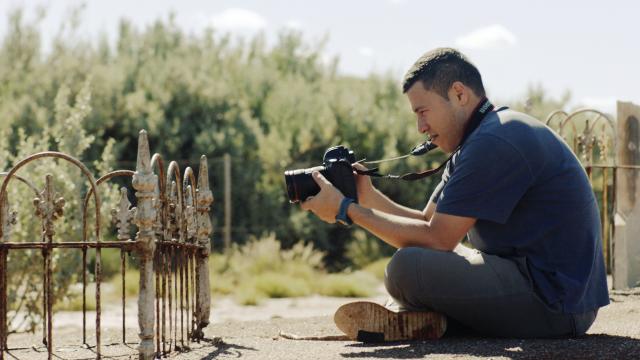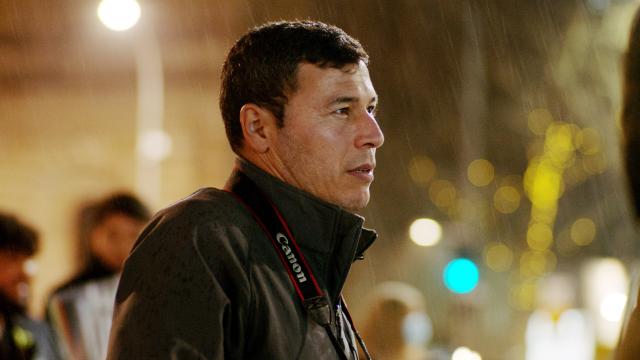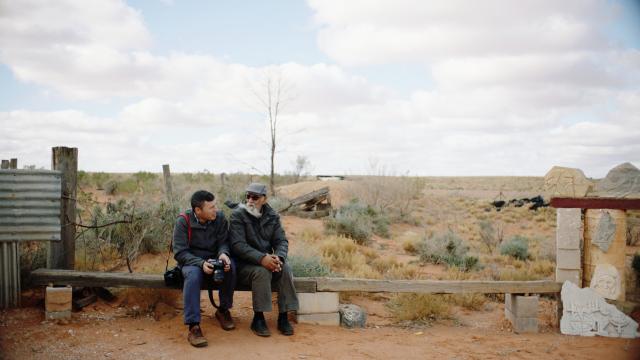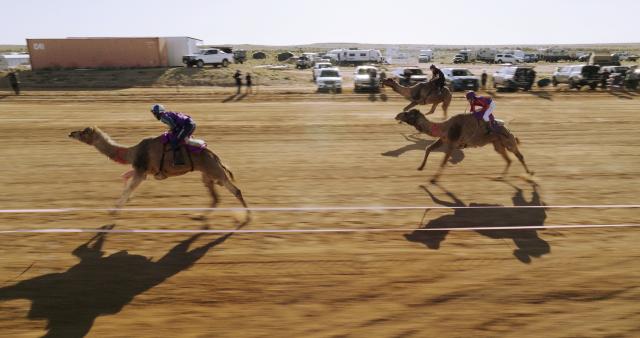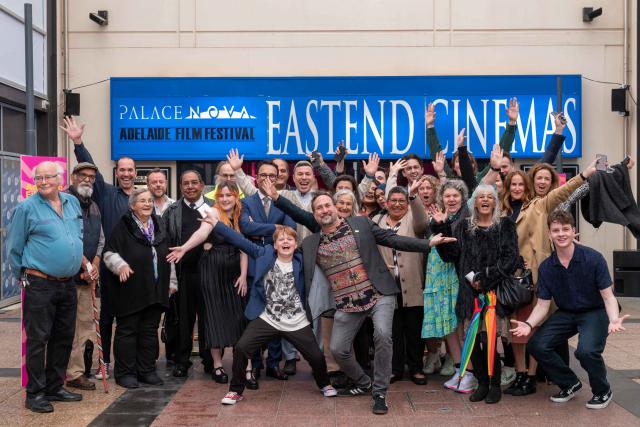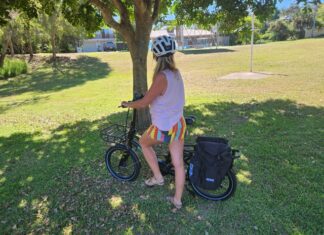In the fascinating and sometimes horrific way that history has of repeating itself, award-winning Afghan photographer and human rights activist Muzafar Ali found himself a refugee in Australia about 150 years after his descendants had arrived here as cameleers to open up supply routes through the Australian outback.
Born a Hazara in Afghanistan in 1987, Muzafar grew up in Pakistan as a refugee, but in 2004, when he was just 17, he returned to Afghanistan to work with the United Nations disarmament program. This work took him across the country and he extensively photographed the regions, providing an insight into rarely documented areas.
He donated his photographs to promote education, women’s rights, social justice, and strengthening democratic institutions and was the first Afghan photographer exhibited by the United Nations in Afghanistan. But Muzafar’s story was only just beginning, and now the next chapter has been beautifully documented by Jolyon Hoff in the film Watandar, My Countryman, which will screen at The J on 8 June.
Muzafar left Afghanistan after the Taliban targeted his family and ended up in Indonesia with almost 10,000 stateless Afghans. He set up the Cisarua Refugee Learning Centre and dedicated himself to organising education for the many stranded children who were not allowed access to Indonesian schools. But in 2015, Muzafar and his family were resettled in Australia, and granted permanent residency in 2018, becoming the first in five generations to no longer be a refugee.
He set up home in Adelaide where he continues to devote his time to supporting the Learning Centre and raising awareness of the families still stranded. But at this time another big idea entered Muzafar’s consciousness. When he discovered that Afghans had been in Australia for 160 years he felt compelled to photograph and document the stories of their descendants.
The first Afghan immigrants arrived in the colony of South Australia in 1838, well ahead of the first camels in 1840, but by the time of the Burke and Wills expedition in 1860, officialdom had put together that you can’t have one without the other and imported 24 camels and eight cameleers to accompany the doomed expedition. But by the end of that decade the explorers and their funders had realised the necessity of desert beasts of burden and the men who could drive them, and there were some 3000 Afghan cameleers living in Australia, mostly South Australia.
For the next half century, Afghan cameleers played a vital role in opening up Central Australia, until the arrival of the railways they helped build made them redundant, but their Australian identity remained confused, somewhere between European settlers, Indigenous workers and members of the stolen generation.
This confusion of identity was what intrigued Muzafar when he came to call Australia home, particularly after the Taliban takeover in 2021 meant that many Afghan people could never go home.
Muzafar says in the voice-over for Watandar: “When I discovered that Afghans had been living in Australia for 160 years I wanted to know more. When war came in my country I was forced to leave and now we cannot return. Now I’m in Australia I’m trying to find out how I belong here. My goal [in this film] is to explore the notion of identity in Australia, because I wonder what will happen to my children, who will they be? It’s incredible for me to see the depth of trauma that my descendants here have experienced.”
Watandar producer and director Jolyon Hoff, who first met Muzafar while filming his previous refugee documentary, The Staging Post, says: “When Muzafar decided to photograph the descendants in an attempt to understand his own new Afghan-Australian identity, we started filming. His experience as a former Afghan-Hazara refugee, along with his wisdom and charisma, presented a rare opportunity to re-examine Australia’s colonial history. Watandar, My Countryman touches on some of Australia and the world’s biggest geopolitical stories, including the relationship between colonial, ancient and immigrant Australians, our treatment of refugees, the division between the world’s dominant religions, the success and or lack of success of the international forces in Afghanistan, and the power of individuals to create change.”
Watandar, My Countryman premiered at the Adelaide Film Festival. It has been nominated as best feature documentary by the Screen Producers Australia and is being released in Australian cinemas in June. Tickets for the Thursday 8 June screening are available at thej.com.au/watandar-my-countryman/. Muzafar Ali and Jolyon Hoff will also be at at the Sonder Gallery, Cooroy, on Friday 9 June, where Muzafar’s photographs will be exhibited and the documentary screened. Tickets through humanitix.com

